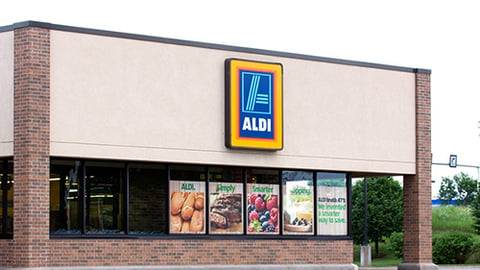U.S. Grocers Commit to HFC-Free Stores
In time for Earth Day, an Environmental Investigation Agency (EIA) initiative identifying U.S. retailers committed to reducing hydrofluorocarbons (HFCs) has identified Ahold Delhaize USA, Aldi U.S., Whole Foods Market, Sprouts Farmers Market and Target as standout leaders in this regard.
The companies are profiled in a web platform that provides a map of U.S. supermarkets employing climate-friendly cooling and highlights specific company actions in three key areas: adopting technologies, refrigerant management, and engaging in technical and policy dialogue.
“In a time of acute need for leadership on climate change, the U.S. retail sector has remained a laggard in adopting climate-friendly cooling compared to their counterparts in rest of the developed world,” noted Avipsa Mahapatra, climate campaign lead at EIA, a Washington, D.C.-based nongovernmental organization. “Smart companies, such as Aldi U.S., committed to rapidly scaling up energy-efficient HFC-free technologies, demonstrate that it makes business and climate sense to lead in adopting future-proof refrigeration systems not reliant on potent super-pollutants.”
For its part, Aldi U.S. this year plans to add HFC-free refrigeration systems to 100 more of its nearly 1,900 stores.
“Aldi is deeply committed to reducing its refrigerant emissions and believes natural refrigerants are the best long-term solution for the planet,” said Aaron Sumida, VP at the Batavia, Ill.-based hard-discount grocer. “To put this value into practice, Aldi has adopted transcritical CO2 refrigeration systems in many of its new and remodeled stores, and targets 100 more in 2019. We’re excited to continue to drive forward change with our commitment to hydrofluorocarbon reduction and adopting natural refrigeration systems.”
“We currently have 30 stores using low-GWP [global warming potential] refrigeration systems including CO2, propane and ammonia, and have adopted propane self-contained cases across the entire chain,” observed Aaron Daly, global director of energy management at Austin, Texas-based Whole Foods. “We have seen great results from our low-GWP projects to date and continue to invest in innovation, exploring new approaches to reducing HFCs while addressing the varying needs of food retail refrigeration.”
“We are committed to limiting our climate footprint, including taking steps to reduce HFCs used in cooling,” said Brittni Furrow, VP of sustainable retailing for Carlisle, Pa.-based Ahold Delhaize USA. “Our company’s global target to lower the average global warming potential of refrigerants in stores to 2,230 by the year 2020 reflects this commitment. We also continue to look for opportunities to use climate-friendly cooling technologies like those already employed in one Food Lion and three Hannaford stores in the U.S.”
“At Sprouts, we are committed to lowering HFC emissions from cooling by reducing leaks and piloting sustainable refrigeration technologies in stores,” said Frank Davis, director of facilities and engineering at the Phoenix-based natural foods grocer. “We continue to follow through on this commitment through our participation and certification of stores in EPA’s GreenChill Partnership.”
“We commend this small group of companies for taking action, but there is much more U.S. supermarkets can and must do,” pointed out Christina Starr, EIA’s climate policy analyst. “These leading companies represent just 15 percent of the sector, so there’s a big opportunity for more to commitments to phase out the worst HFCs, like R404A, adopt climate-friendly technologies and join the EPA’s GreenChill Partnership to reduce leaks.”
If all U.S. supermarkets were to join the GreenChill Partnership and achieve similar reduced-leak rates, it would mitigate an additional 15.5 million metric tons of CO2e (carbon dioxide equivalent) annually.
Ahold Delhaize USA is No. 4 on Progressive Grocer’s 2018 Super 50 list of the top grocers in the United States, while Whole Foods is No. 8, Aldi is No. 9, Target is No. 13 and Sprouts is No. 22.





